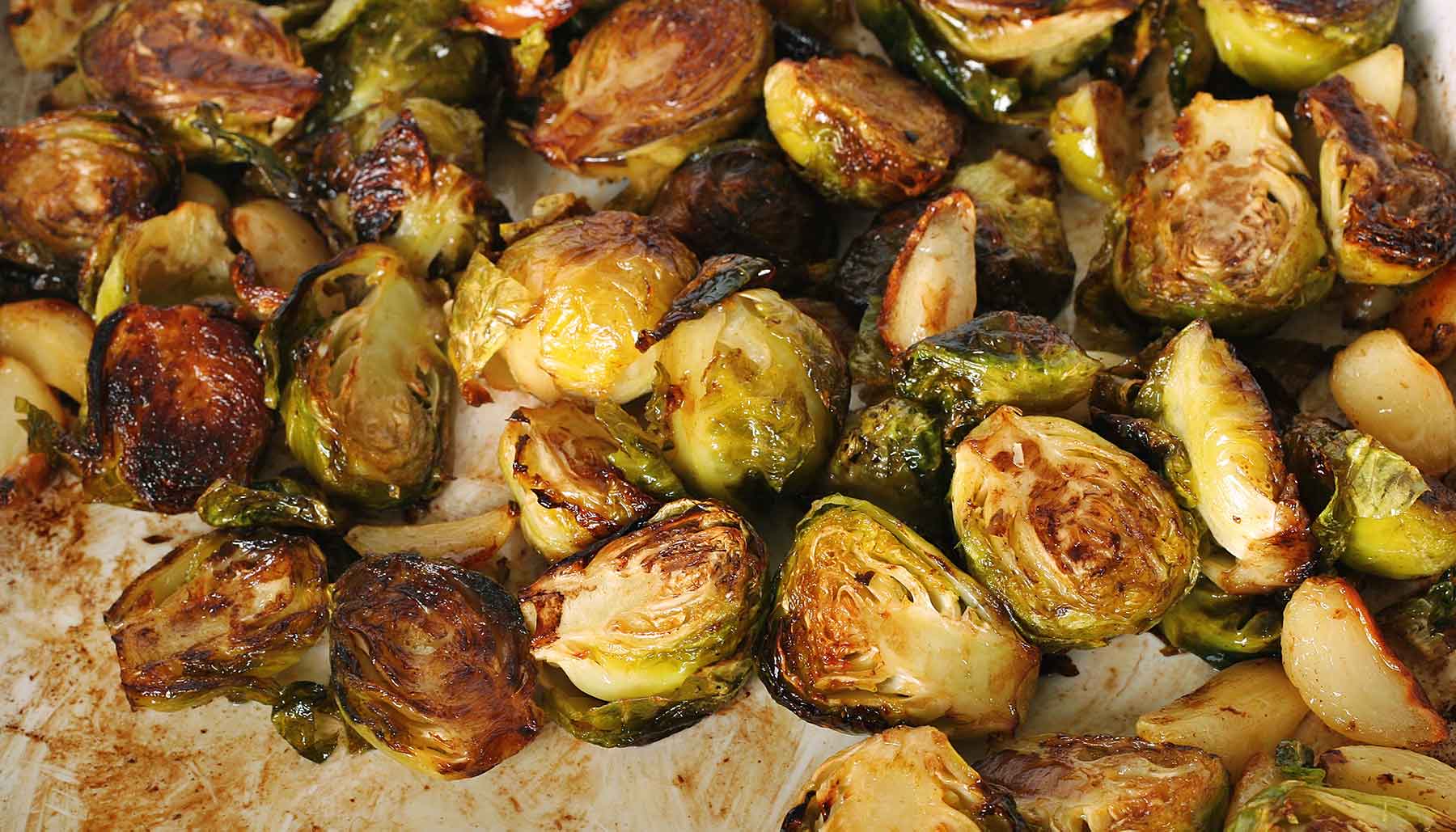Much like other kids, I wasn’t exactly a fan of Brussels sprouts when I was younger.
I know, that’s not really much of a surprise, right? I don’t know that I’ve met very many children that readily ask for Brussels sprouts.

Luckily, our sense of taste changes as we get older. I always knew this was a thing because, well, I experienced it. But as it turns out, there’s scientific proof for why it happens. Young children are just especially sensitive to bitter flavors, like the kind we find in green veggies. Infants and kids have many more taste buds than adults do, and they’re receptive to sweet tastes. The distaste for bitter flavors is like a survival mechanism for babies, making them less likely to consume something poisonous.
Do we grow an appreciation for bitter flavors, or do we just lose enough taste buds that we don’t care? I have no idea, but I do know I ended up liking a lot of foods that I wouldn’t touch with a ten-foot pole when I was a kid.
Included in that list, of course, is the underrated Brussels sprout.
Brussels Sprouts Basics

Brussels sprouts are part of the Brassica oleracea fam. It is the same genus as other cruciferous veggies like cabbage, broccoli, cauliflower, kale, and more. If you think they taste a little similar, it’s because they were all selectively bred from the same plant. These little guys are not just tiny cabbages, though. Cabbage heads grow close to the ground, while Brussels sprouts grow along thick, tall stalks.
All those Brussels sprouts clustered on stalks are kind of funny looking. I was so used to seeing them bagged in a grocery store that I had to laugh the first time I saw them on a stalk!
Anyway, Brussels sprouts were grown as early as the 13th century in the area that is now Belgium, so you can imagine where the name came from. Eventually, they made their way around the globe.
Brussels sprouts have a flavor that’s kind of like a mix between broccoli and green cabbage. They are pretty mild with a bit of a bitter taste, but will generally have a bit of a nutty flavor when cooked. I find them kind of earthy, in that leafy green vegetable way. When cooked the right way, they can be a little on the sweet side. And when cooked wrong, they can wind up horribly bitter.
I’m assuming that everyone who hates Brussels sprouts has only had them prepared the wrong way!
All the Reasons You Should Be Eating More Brussels Sprouts
Brussels sprouts aren’t just tasty. They are also really good for you. In fact, you may have heard them called a superfood once or twice. That’s because these little leafy orbs are packed full of so many vitamins and other important nutrients. Let’s talk about all the reasons you should add these nutritious veggies to your diet.
Related: What Are Superfoods, Anyway?
Brussels Sprouts Are Rich in Antioxidants
Antioxidants are important because they protect cells from oxidation, the chemical reaction that produces free radicals. If that sounds bad, that’s because it is. If free radicals overwhelm your body’s ability to regulate them, they can lead to cellular damage, causing illness and aging.
Brussels Sprouts Have a Ton of Vitamin C
One of those antioxidants is vitamin C. Just the mention of vitamin C reminds you of oranges, right? Surprisingly, a cup of raw Brussels sprouts has more vitamin C than a medium-sized orange. This vitamin also helps protect against the effects of free radicals. Vitamin C can help contribute to your youthful glow, thanks to its ability to contribute to collagen production. And of course, we all know vitamin C plays an important role in immune system function!
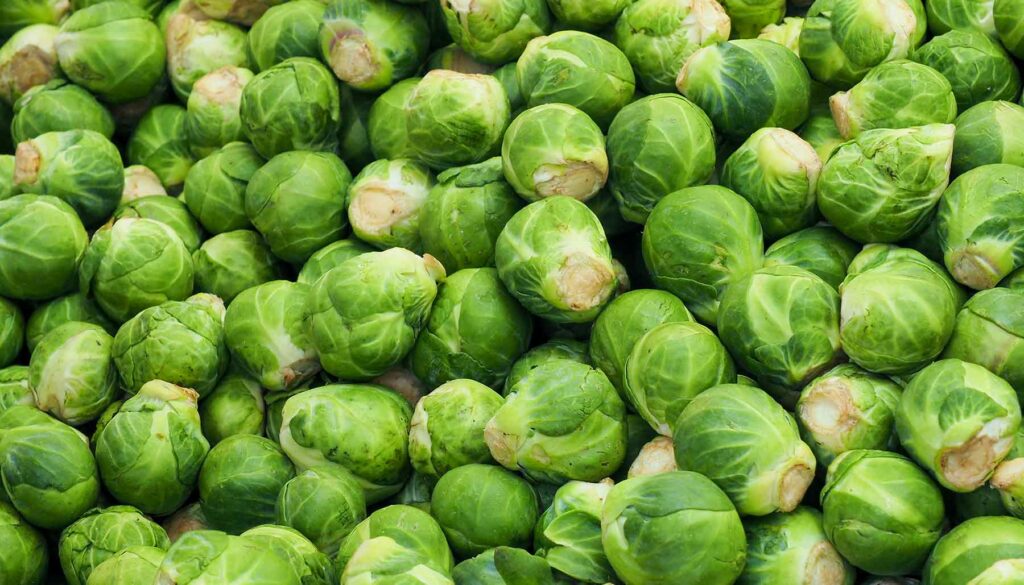
Brussels Sprouts Are High in Fiber
Just one cup of Brussels sprouts contains a little over 3 grams of dietary fiber, which is around 10-13% of the recommended daily intake. All that fiber can help regulate blood sugar levels and feeds the beneficial bacteria in your gut. All that gut bacteria has been tied to overall mood, immunity, and anti-inflammation. Fiber is also really important to digestive health, keeping things regular and even lowering your risk of colorectal cancer.
Brussels Sprouts Are Full of Vitamin K
The human body requires vitamin K for some pretty important things. This vitamin plays a crucial role when it comes to blood coagulation – aka clotting, which prevents excessive bleeding. But that isn’t vitamin K’s only job. It also plays a role in bone health: improving bone strength, preventing injuries, and helping protect against bone loss.
Brussels Sprouts Are Anti-Inflammatory
This one is partly because of all the nutrients already on this list, but also because of phytonutrients. Pronounced like “fight oh nutrient,” it literally just means “plant nutrient.” Hey, they are plants, after all. Common phytonutrients found in Brussels sprouts include carotenoids like flavonoids, beta-carotene, lutein, and more. Just like with other cruciferous veggies, the phytonutrients in Brussels sprouts support detoxification and anti-inflammatory pathways. This means they may help lower inflammation and reduce cancer risk.
Brussels Sprouts Are a Good Source for Omega-3 Fatty Acids
Omega-3 fatty acids are “good fats” and are good for the heart. They have been proven to improve cholesterol levels, stave off heart disease, and lower blood pressure. Most people turn to fatty fish, like salmon or tuna, to get their intake, but this isn’t the go-to for vegans, vegetarians, and people who simply don’t like fish. Luckily, there are plant sources that you can look to, and Brussels sprouts are one of those options. They are rich in alpha-linolenic acid – aka ALA – which is converted to omega-3s in your body.
Okay, But One More Reason
And to top it all off, aren’t they just adorable? They’re like teeny tiny little heads of cabbage (even though they aren’t really cabbage, like I already said). So cute!
How to Make Those Brussels Sprouts Tasty
I always say that anyone who doesn’t like Brussels sprouts probably just hasn’t had them prepared the right way. And by the right way, I really mean right for you! We’re not all the same, and none of us like the exact same things, either. There are so many different things you can do with them, and chances are you haven’t tried them all yet.
Brussels sprouts are actually pretty versatile and can be prepared in a number of ways. They also pair well with an array of flavors. Personally, I like them roasted with just a little salt and pepper, but you can cook them with bacon, shave them for a salad, or even serve them up with eggs!
These recipes will have even the biggest Brussels sprouts haters rethinking everything they know!
Mushroom and Brussels Sprouts Hash
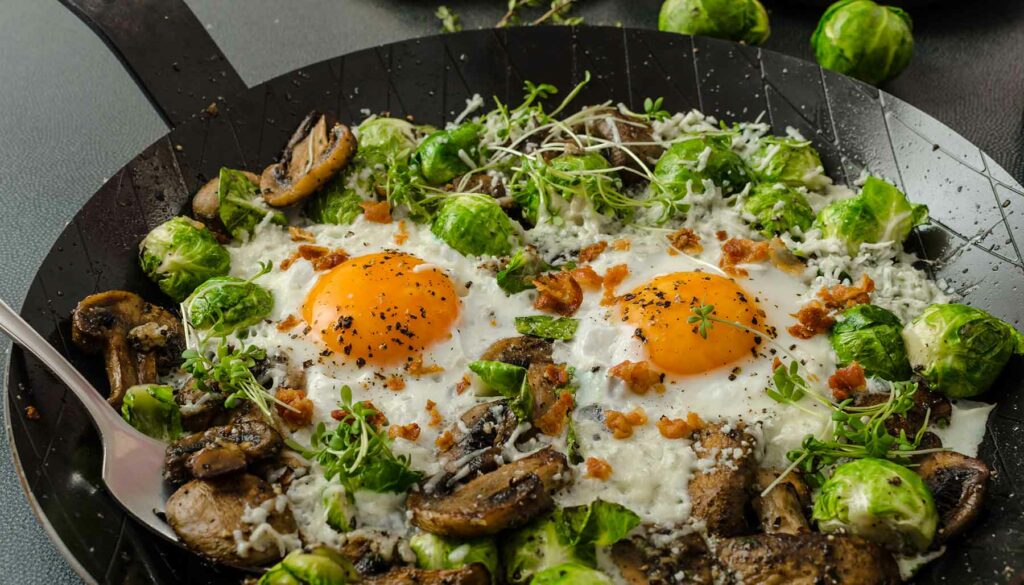
Using Brussels sprouts to make a hash has started catching on. It makes for a low-carb, nutrient-heavy dish that fits into a variety of diets. Hash is obviously a go-to for breakfast, thanks to the eggs on top. However, a hash made from Brussels sprouts and mushrooms seems like a no-brainer for lunch, brunch, and dinner, too. You’ll find plenty of taste here between the browned mushrooms and caramelized Brussels sprouts. Plus, it gets kicked up a notch with ginger, cinnamon, rosemary, and sage.
Check out the recipe here: Mushroom and Brussels Sprouts Hash
Honey Balsamic Glazed Brussels Sprouts
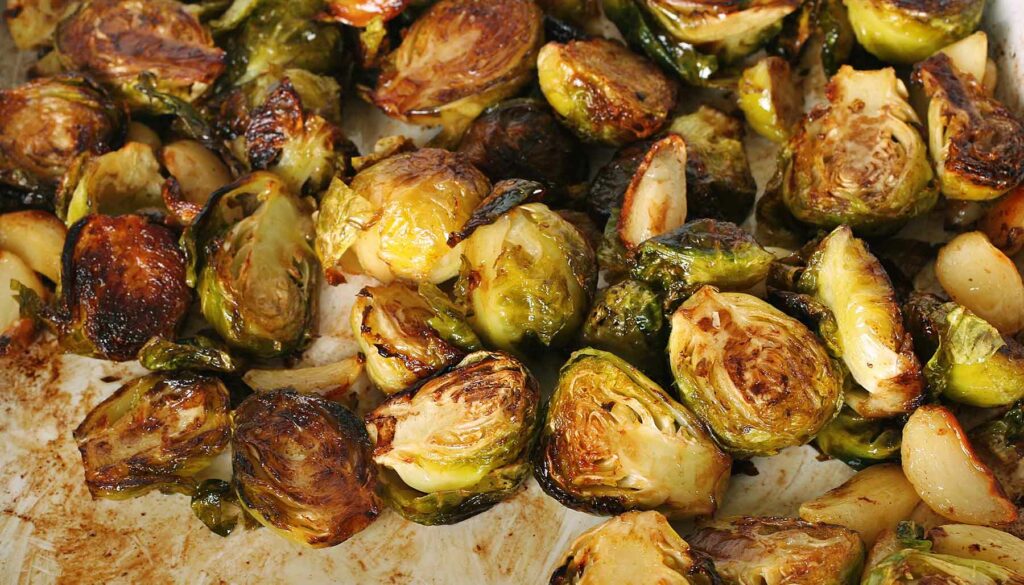
I love a good Brussels sprout, but this recipe really takes them to the next level. By leaving them in the pan to crisp up, you end up with the perfect crispy outside and a soft, creamy texture inside. Plus, it’s glazed with a honey and garlic balsamic glaze, adding plenty of sweetness to the savory Brussels sprouts. They are so delicious that you might not believe they were just that easy to make.
Check out the recipe here: Honey Balsamic Glazed Brussels Sprouts
Kale and Shredded Brussels Sprouts Quinoa Salad
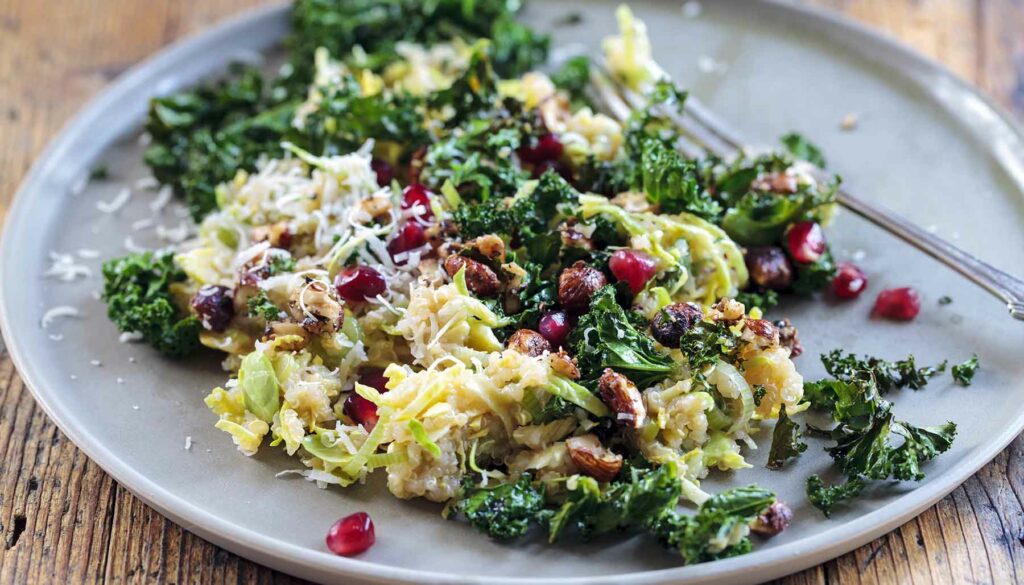
I already talked about just how healthy Brussels sprouts are, but if you really want to maximize that vitamin C content, you should eat them raw. The best way to eat leafy green vegetables? In a salad, obviously. I’m not talking about a bland, boring salad, though. This recipe calls for kale, walnuts, pomegranate seeds, lemon, a little apple cider vinegar, and honey. It’s nourishing and absolutely delicious.
Check out the recipe here: Kale and Shredded Brussels Sprouts Quinoa Salad
Simple Roasted Brussels Sprouts
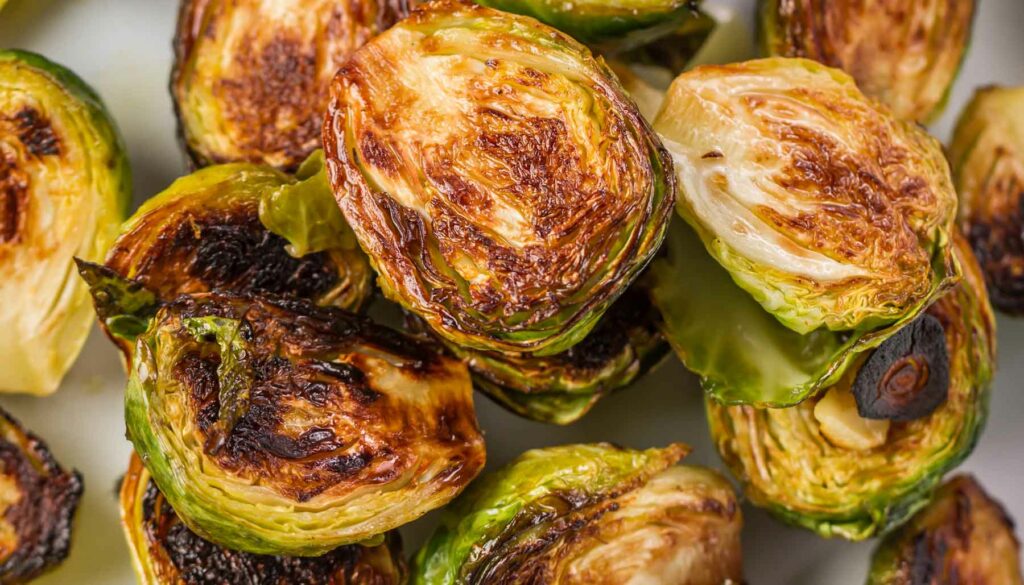
I can’t deny that a basic roasted Brussels sprout is so tasty. It’s incredibly easy, and I can’t ever stop eating them. All you need is some halved Brussels sprouts, a little olive oil, and some salt and pepper. Just toss them in the oil, spread them out on a sheet pan, and let the oven do all the work. It seems so simple, but it really lets that nutty, almost sweet flavor of cooked Brussels sprouts stand out.
Check out the recipe here: Roasted Brussels Sprouts


